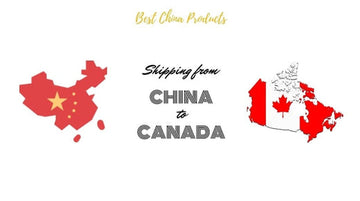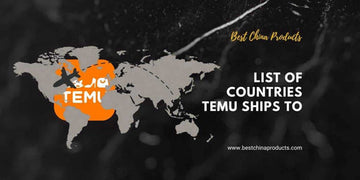When you think of cutting-edge home appliances, Dyson is a name that stands out.
From its powerful vacuum cleaners to its sleek bladeless fans, Dyson has revolutionized the way we experience household technology.
But have you ever wondered where Dyson vacuums are actually made? Despite its strong presence in the U.S., Dyson is originally a British company with manufacturing hubs across Asia.
In this deep dive, we’ll uncover Dyson’s production process, explore its global reach, and reveal why its vacuums are considered top-tier.
Is Dyson a U.S. Brand?

Did you know that Dyson was born in the United Kingdom, not the United States, despite its popularity stateside?
Yes, the company's roots trace back to British soil, where its founder, James Dyson, first envisioned the creation of a new generation of vacuum cleaners.
Despite this, Dyson products have found a prominent place within the US market. A testament to this is their availability in major retail chains like Best Buy and Home Depot, and on popular online platforms such as Amazon.
Where are Dyson Vacuums Made?

Presently, Dyson's manufacturing operations are spread across Asia, with production facilities located in Malaysia, Singapore, Thailand, and the Philippines.
What's intriguing is that each facility serves a specific purpose in the manufacturing process.
For instance, Dyson's high-speed digital motor, an essential component of their vacuum cleaners, is produced solely in Singapore.
Contrary to some beliefs, Dyson does not manufacture any of its parts in China.
While rumors suggesting such a connection have surfaced, it's crucial to underline that Dyson emphasizes strict quality control, which is maintained through its chosen manufacturing sites.
Additionally, Dyson has been active in combating imitation products emerging from China, further indicating the absence of a manufacturing relationship with the country.
Does Dyson Have a Connection with Germany?

Dyson vacuum cleaners are not manufactured in Germany, yet the German market has displayed a strong demand for Dyson products.
This is seen in the annual sales of Dyson products in Germany, which contributes significantly to the company's annual revenue of over 1.2 billion British pounds.
Interestingly, the popularity of Dyson products among German consumers has remained robust despite the company's relocation from the UK.
Who Makes Dyson Vacuum Cleaners?

Dyson Limited, the company behind the manufacture of Dyson vacuum cleaners, oversees all production aspects.
Each factory in its network, whether in Singapore, Malaysia, Thailand, or the Philippines, operates as a division of Dyson Limited.
These factories bear the Dyson name but operate independently, each contributing to a different stage of the production process.
For instance, the Singapore facility, the first Dyson factory, can manufacture up to 4 million digital motors annually.
The other factories are responsible for different components, which are then assembled, tested for quality, and packaged before being shipped to distributors worldwide.
How Much Will A Dyson Vacuum Cleaner Cost?

Dyson vacuum cleaners are perceived as a premium product, with their price ranging from $300 to $1,000.
While this might appear high compared to other brands, Dyson's pioneering bagless technology and overall product longevity justify the cost.
The company's product range extends beyond vacuum cleaners, including bladeless fans and washing machines, which also reflect the premium positioning.
Dyson products can be purchased from numerous retailers, both online and offline.
Besides the company's official website, Dyson vacuum cleaners and other appliances can be found in large retail chains such as Best Buy, Home Depot, and Bed Bath & Beyond.
How Long Will A Dyson Vacuum Last?
With good care and regular maintenance, your Dyson vacuum cleaner should serve you well for at least a decade.
Of course, the way you use your vacuum and how frequently you put it to work can impact its lifespan.
However, Dyson provides a 2 to 5-year warranty on its products, covering free repairs within this timeframe.
Why Did Dyson Relocate to Malaysia?
The move from the UK to Malaysia allowed Dyson to escape escalating labor costs in its home country.
Moreover, this strategic shift allowed the company to set up a cluster of factories in close proximity, promoting efficient production and distribution.
Where is Dyson's Headquarters Now?

In 2021, Dyson moved its headquarters to the renovated St. James Power Plant in Singapore.
The two-year refurbishment transformed the former coal-powered plant into a state-of-the-art office space, symbolizing Dyson's innovative spirit.
Before this transition, Dyson had maintained its headquarters in Malmesbury, UK, since 1993.
What Materials Does Dyson Use in Their Vacuums?


Dyson uses a combination of materials to manufacture its vacuum cleaners. Here's a look at some of the key materials:
-
Plastics: Dyson primarily uses a range of high-quality, durable plastics in their vacuum cleaners. These materials include ABS (Acrylonitrile Butadiene Styrene) and polycarbonate, which are known for their durability, rigidity, and heat resistance. They are commonly used in the construction of the body and other external components of the vacuum cleaners.
-
Metals: Some parts of Dyson vacuums, like the motor and certain internal mechanisms, are made of metal. The metals used could be steel, aluminium, or other alloys, depending on the specific requirements of the part in question.
-
Electronic Components: Dyson vacuums are also made up of a number of electronic components. These include the digital motor, batteries (especially for cordless models), and various sensors used to optimize performance.
- Rubber and Foam: These materials are often used for seals, gaskets, and filters. They help ensure optimal performance and longevity of the vacuum cleaners.
Dyson invests heavily in research and development to continually improve their products and the materials they use. They have a reputation for innovation, not just in design but also in the choice and application of materials.
Are Dyson Vacuums Certified?

Dyson vacuum cleaners have achieved a number of certifications and meet various standards globally, which ensure the quality, safety, and sustainability of their products.
-
Energy Star Certification: Some Dyson vacuum cleaners, particularly those that utilize Dyson's digital motor technology, have received Energy Star certification for their energy efficiency.
-
Asthma & Allergy Friendly Certification: Several Dyson vacuum models are certified asthma & allergy friendly by the Asthma and Allergy Foundation of America (AAFA). This certification signifies that the products have been scientifically tested and proven to considerably reduce potential allergens and irritants.
-
Quiet Mark: The Quiet Mark is an international approval award program associated with the UK Noise Abatement Society. Several Dyson vacuum cleaners have been awarded the Quiet Mark for their low noise levels.
- Regulatory Standards: Dyson vacuums are designed to meet various regulatory standards worldwide, including those set by the FCC in the U.S, CE in Europe, and others.
Are Dyson Vacuums Made in China?
Contrary to some assumptions, Dyson vacuum cleaners are not manufactured in China. The manufacturing of Dyson vacuum cleaners primarily takes place in Malaysia and Singapore.
The motor, a key component of their vacuums, is produced exclusively in Singapore. The rest of the parts and assembly are done in facilities located in Malaysia, the Philippines, and Thailand.
There have been rumors about certain parts of Dyson vacuums, such as rechargeable batteries, being sourced from China, but these remain unverified.
It is worth noting that Dyson has consistently prioritized quality control in their manufacturing process, a factor that has driven their decision to maintain their manufacturing base closer to home in Southeast Asia, instead of moving production to China.
Furthermore, Dyson has faced issues with counterfeits and knock-offs emerging from China, which have sometimes led to confusion about the actual origin of genuine Dyson products.






